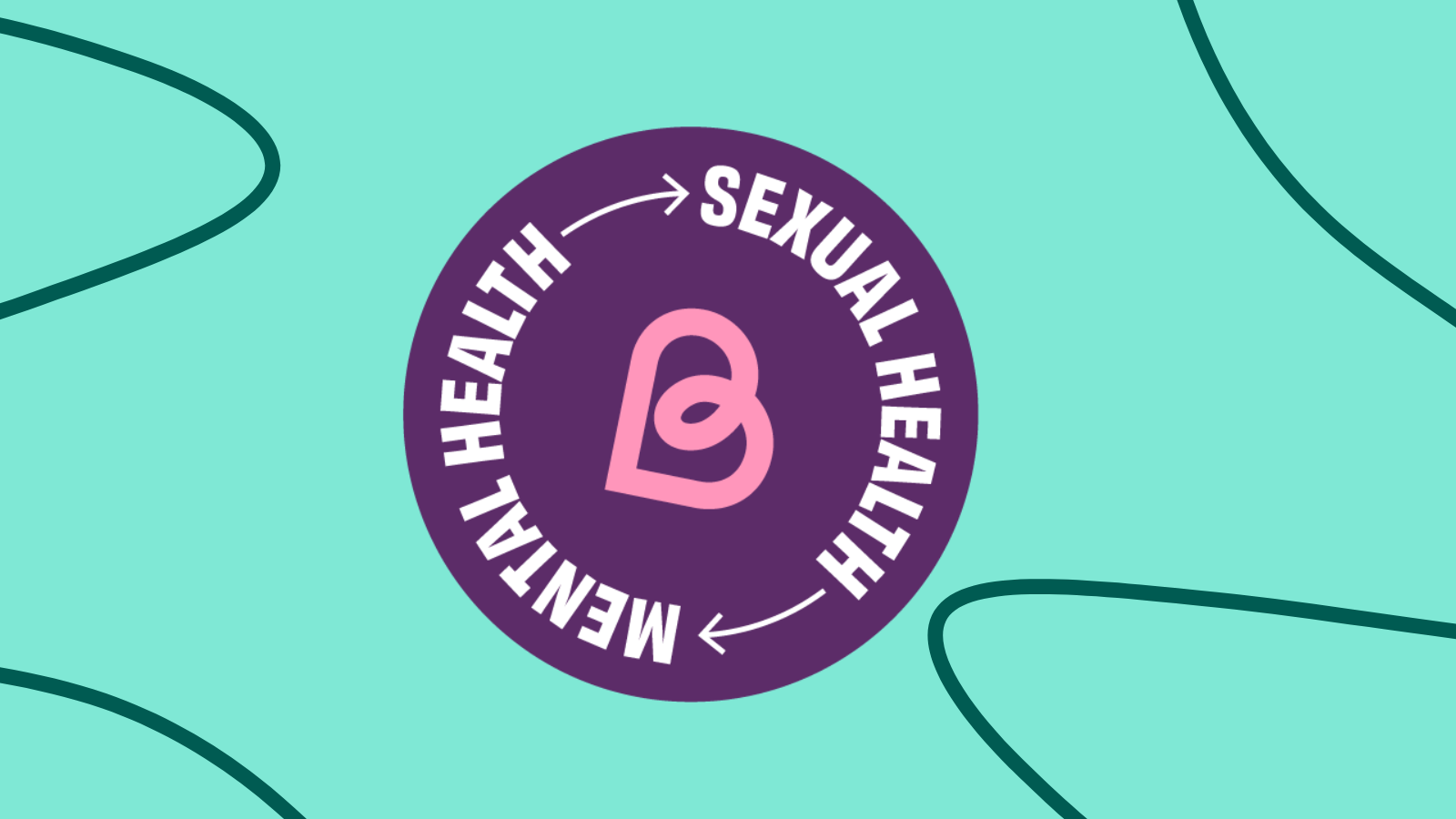For #SHW24 we’re exploring the links between mental health and sexual health. In this blog Brook Education and Wellbeing Specialist, Alice Hoddinott, discusses some examples of the ways in which the two intersect.
Sexuality is central to the human experience. Yet our sexual health, the types of relationships we have and how we look all fall victim to stigma. This stigma can have a real impact on our mental health, influencing everything from how we see and love ourselves to the relationships we build and feel confident sharing with others. There are many areas of our lives where we face stigma: our STI status, our sexual orientation and gender identity, and even the concept of pleasure as a vital part of sex.
STIs
Sexually transmitted infections (STIs) are something most people don’t talk about very openly, likely for fear of being judged and the shame that comes attached to being diagnosed with an infection. When we’re diagnosed with an STI, the stigma can be overwhelming and can lead us to feeling isolated and fearful. Some people see STIs as a sign of promiscuity or irresponsibility, reinforcing harmful stereotypes that ignore the fact that STIs are actually common and treatable. This can result in mental health struggles, especially anxiety as individuals grapple with the shame they might be feeling.
By having more open and honest conversations about STIs, we can empower individuals to take control of their sexual health. Access to accurate information and supportive resources can reduce anxiety and promote a sense of autonomy, leading to better mental health outcomes. Normalising these conversations removes that stigma and means more people can access the support they need!
LGBTQ+
For those who don’t fit into the cisgender, heteronormative mould society has created for us, the stigma surrounding sexual orientation and gender identity can be particularly damaging. LGBTQ+ individuals often face discrimination, rejection, and even violence, all of which can contribute to mental health challenges such as depression, anxiety, and suicidal ideation. The pressure to conform to societal norms or to hide your true identity can also lead to internalised homophobia or transphobia, which again can increase someone’s risk of living with poor mental health.
One of the most powerful things we can do to strip stigma away from the LGBTQ+ community is foster an ethos of acceptance and affirmation. When individuals feel supported and validated, they are more likely to experience higher self-esteem, stronger community connections, and a greater sense of wellbeing. Creating safe spaces where people can express their true selves without fear of judgment or discrimination is so important in reducing stigma and supporting individuals to lead happy and fulfilling lives.
Pleasure
Pleasure is a fundamental part of sex and relationships, yet it is wrapped in so much stigma! Lots of us are taught to view sex as a means for reproduction and often we learn to view sex through cultural and moralistic lenses. This means the idea of pleasure as a natural and healthy part of sexual experiences is neglected which in turn leads to feelings of guilt, shame, or dissatisfaction, all of which can have negative mental health implications.
When we talk about pleasure as a positive thing for everyone, we can transform these negative experiences into positive ones. When people feel empowered to seek out and enjoy sexual pleasure, it can have big impacts such as reducing anxiety, improving self-esteem, and strengthening relationships – leading to better mental health outcomes. It’s also known that orgasms can reduce stress and boost our happy hormones!
Body Image
The pressure to conform to unrealistic beauty standards can lead us to have difficult relationships with our bodies, which in turn can impact our self-esteem and overall mental health. Individuals who differ from what society says is attractive may struggle with feelings of inadequacy and really struggle to love the skin they’re in; this can affect their relationships and pleasure too.
When we remove stigma around different bodies and embrace the fact that we are all unique, it can lead to a more inclusive and healthy understanding of identity and sexuality. When people feel confident and comfortable in their bodies, they are more likely to engage in sex and relationships that are more fulfilling. This positive self-image can reduce the risk of mental health issues and anxiety and create a more positive relationship with our sexuality.
If we can address these stigmas and start to dismantle them, then individuals can experience greater empowerment, self-acceptance, and overall wellbeing. So how do we do that?
- Celebrate the diverse nature of human beings – we’re all different and that makes us great!
- Educate everyone in society by normalising open and honest conversations about sex and relationships.
- Create supportive environments where individuals can express their sexuality without fear of judgment.





